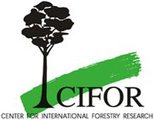The Center for International Forestry Research (CIFOR) has released a report analyzing the implementation of REDD+ in six countries.
'The challenges of establishing REDD+ on the ground' covers 23 sub-national programmes, concluding that the greatest challenges facing REDD+ implementation are inadequate economic incentives coupled with insecure land tenure and use rights.
 April 2014: The Center for International Forestry Research (CIFOR) has released a report analyzing the implementation of REDD+ in six countries. ‘The challenges of establishing REDD+ on the ground’ covers 23 sub-national programmes, concluding that the greatest challenges facing REDD+ implementation are inadequate economic incentives coupled with insecure land tenure and use rights.
April 2014: The Center for International Forestry Research (CIFOR) has released a report analyzing the implementation of REDD+ in six countries. ‘The challenges of establishing REDD+ on the ground’ covers 23 sub-national programmes, concluding that the greatest challenges facing REDD+ implementation are inadequate economic incentives coupled with insecure land tenure and use rights.
The report features case studies from Brazil, Cameroon, Indonesia, Peru, Tanzania and Viet Nam, which demonstrate that REDD+ is succeeding in reducing local deforestation and forest degradation. However, the report’s survey results call into question the long-term sustainability of the REDD+ concept, with about a third of respondents stating that they intend to or have already abandoned the project affiliation to REDD+. In addition, given the uncertainty of REDD+ funding, the publication notes that many projects are lowering their expectations for how much REDD+ projects can benefit local livelihoods.
The report also highlights steps that will support the long-term success of REDD+, including: forest tenure reform; the alignment of REDD+ planning with sector strategies and plans; stronger governance and actions to address illegal logging; the development of sustainable supply chains; and the reduction of demand for woodfuel.
CIFOR is a member of CGIAR. [Publication: The challenge of establishing REDD+ on the ground: Insights from 23 subnational initiatives in six countries] [Publication Summary]